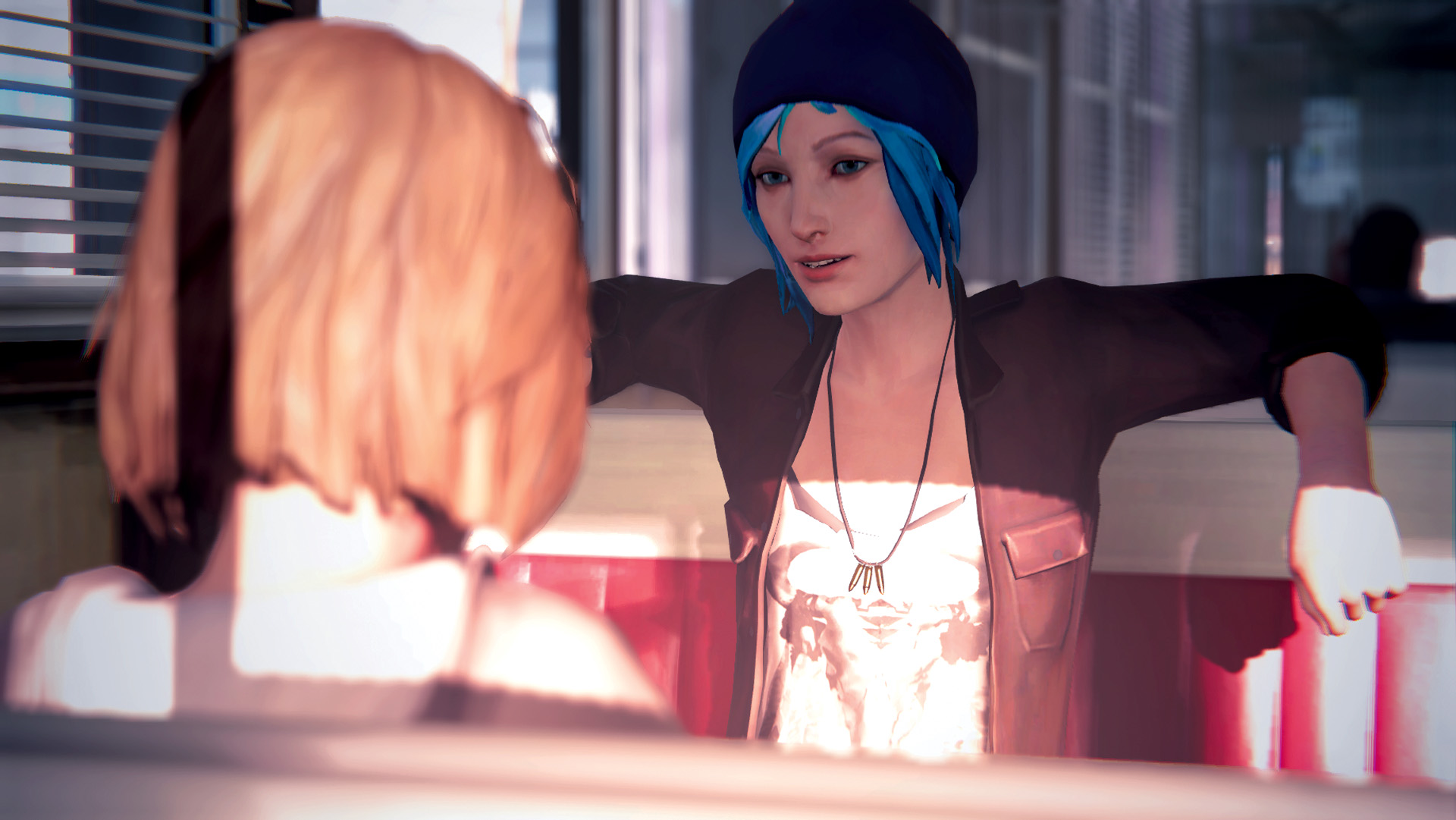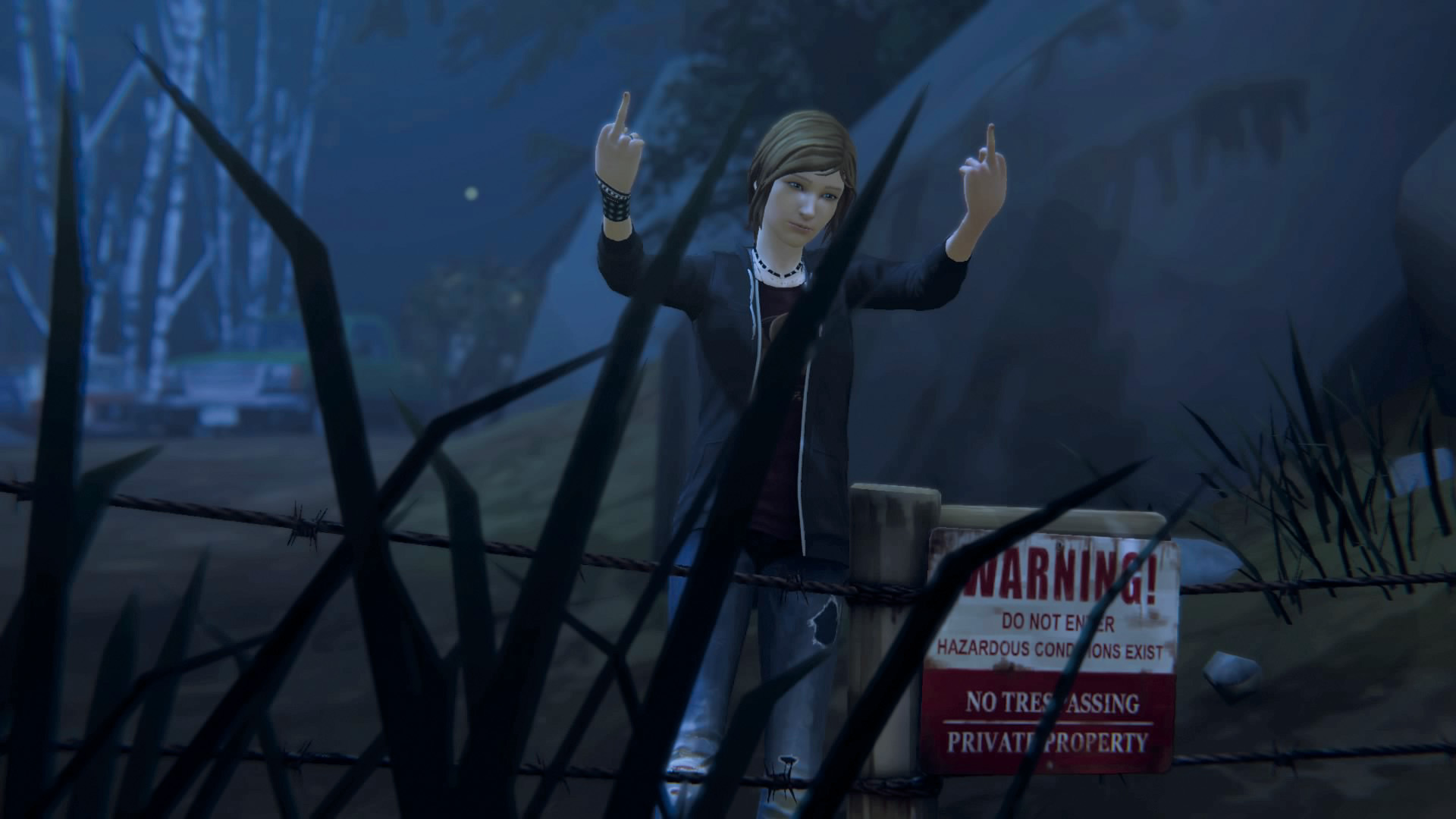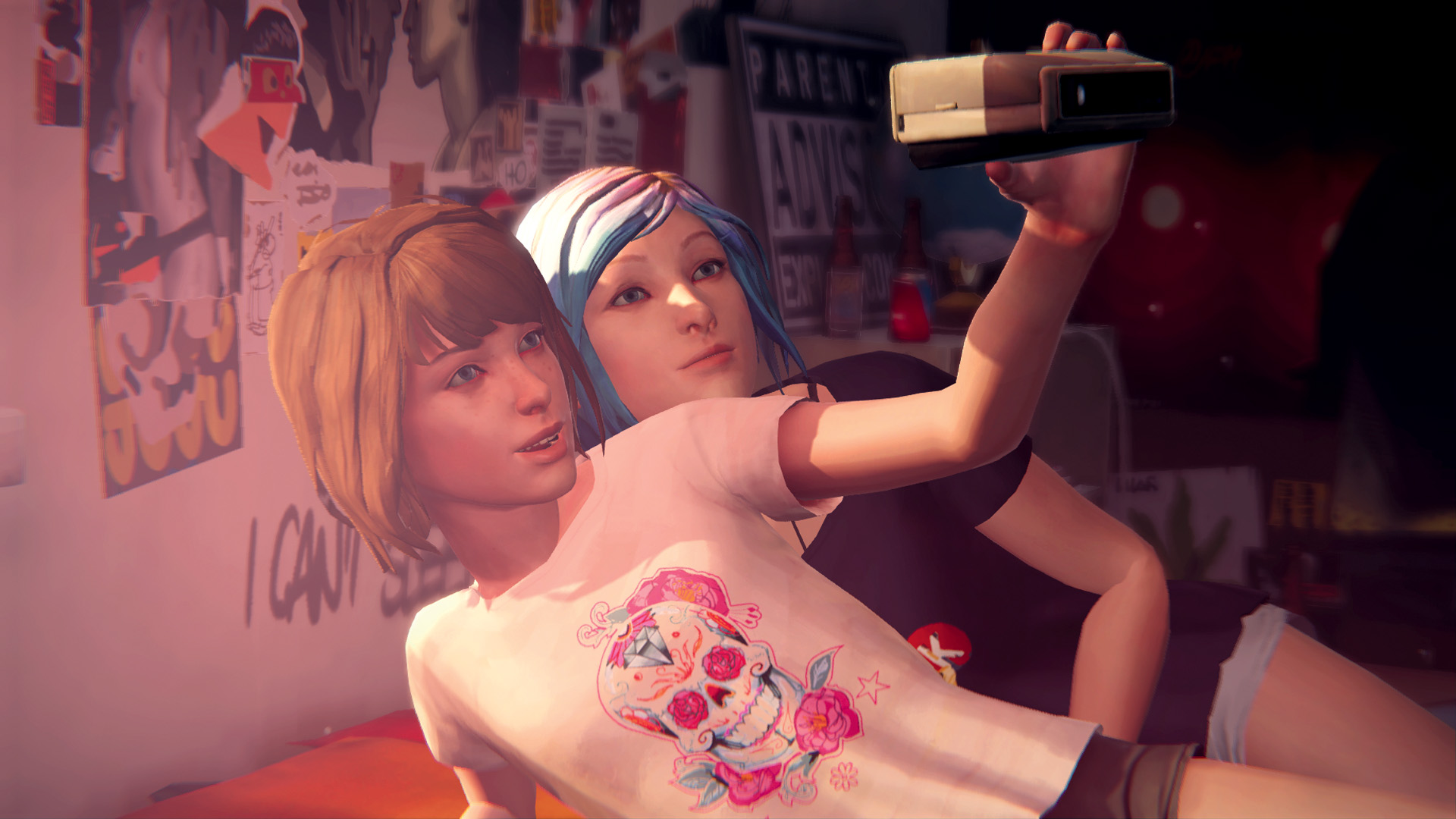
This feature contains spoilers for the end of Life is Strange.
Of all the characters in the countless games I’ve played over the years, it seems odd that I’ve grown most attached to this one. I’m old enough to remember when mobile phones had aerials, Ricky Gervais was funny, and old episodes of Top Of The Pops didn’t come across as Crimewatch musicals. Why on Earth would I find myself so drawn to a fictional rebellious teenager?
After all, Chloe Price’s character is drawn with rough edges. Although she’s referred to in-game as a punk, her style is more a mixture of punk, grunge, and emo (or as I like to call it, “pungeo”). Despite this, when she puts on music in her car or in her bedroom, she unerringly listens to marshmallow-soft indie rock, sometimes even dancing as though she’s put on a completely different song. As for Life Is Strange’s prequel series Before The Storm, where Deck Nine took the reins from Dontnod, she’s sometimes a caricature. Her dialogue there is peppered a little too liberally with swears, and the first episode begins with her flipping to middle fingers at a Keep Out sign she purposefully ignores. Gosh!
None of that is nearly enough to stop me thinking of her as a long-distance friend. This is partly due to Ashly Burch’s phenomenal performance in Life Is Strange and all credit too to Rhianna DeVries, whose portrayal of Chloe in Before The Storm was far better than I had dared hope. These two brought Chloe to life in a way that made me feel her pain, share her laughter, and care about her future.
Price war

Vitally, Chloe is not a rebel for the sake of rebelliousness. Her story, masterfully told by narrative osmosis rather than linear lecturing, is a tragic and oddly familiar one. Once a bright student excelling at science, she lost her dad in a car crash. Around the same time, her best friend Max moved away, and failed to keep in touch over the years; something that, although not explicitly explored at length, clearly cut Chloe very deep. She ended up turning to drugs and petty crime, her feelings of pain and resentment intensifying when her mother started a new relationship with a man Chloe did not approve of.
She loves her mum, and she knows that her behaviour hurts her—but she does not, cannot, stop. This fact might seem inconsequential but, for me, it is one of the main things that makes her human.
Chloe feels like a real person to me, with all the flaws and stupid mistakes that entails. It turns out that this affection isn’t a one-way street. Four years after I first met her, Chloe gave me something back.
Keep up to date with the most important stories and the best deals, as picked by the PC Gamer team.
My eldest son is currently trudging through the swamp of his early teenage years, occasionally looking back at his family to sigh at enormous volume. He's a high-functioning autistic child, and in recent years has become incredibly emotionally attached to several fictional characters.
Chloe represents the first time this has happened for him in a videogame. While I don’t feel attached to, say, Loki or Bucky Barnes, I do find myself caring strongly for Chloe. This has become a new patch of common ground for us to connect.
Teen work

I sat with my son for the majority of his playthroughs of both games. It was interesting to see him rapidly grow attached, and to see that he often made the same choices I did (although I had Words following his decision to steal charity money from the principal’s desk).
Fiction has to work very hard to make me cry, but I cried at the Life Is Strange ending where Chloe dies. My son did too, to the extent that he was still upset a few days later. Neither of us would have had this reaction if Chloe didn’t feel real. For us, to all intents and purposes, she is real. We both mourned the loss of a friend, and felt deep sorrow at the fact that this friend didn’t express her feelings for the woman she loved until it was too late.
But! The alternate ending sees both Max and Chloe survive (and, er, the rest of the town die). This is where the comics written by Emma Vieceli pick up, and we’ve begun reading these, too. We’ll stick with Chloe to the end. Because, after all, what are friends for?

